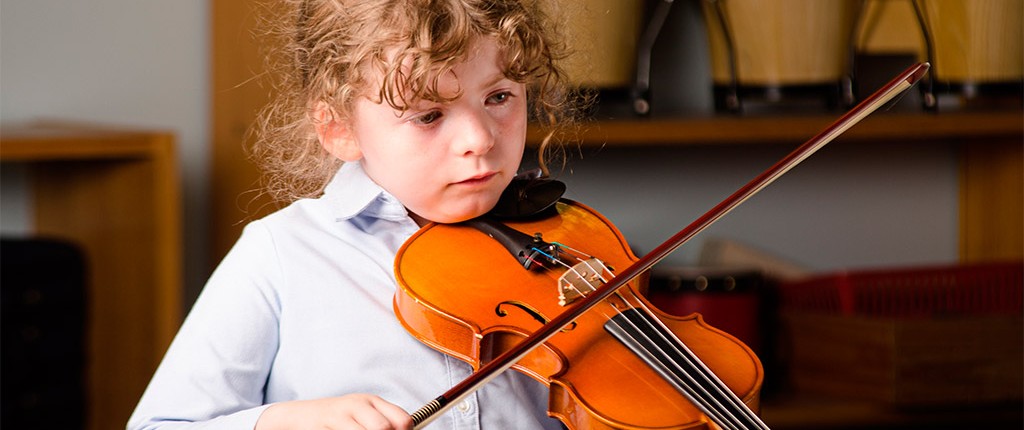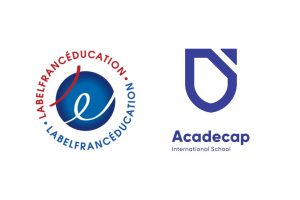Developing a life-long love of learning
An introduction to our Language and Arts curriculum
Bilingualism and Multilingualism
At AcadeCap, we believe that the development of languages and arts skills is of the highest priority.
At the PYP and the Middle School, the language of instruction is French and English, with both languages being considered the primary language. The aim is for students to become competent communicators, understanding and expressing ideas and information confidently, orally and in writing, in both French and English.
In addition, students in Grade 1 and up have the opportunity to study a third language, primarily Spanish or Mandarin, as well as German, Polish, or Arabic, contingent on demand and teacher availability.
Furthermore, AcadeCap staff and the student community are from diverse backgrounds and the diversity of languages is celebrated at AcadeCap to further enrich language learning.
Visual Arts
This programme purposefully sets out to stimulate and nurture all students’ creative potential as well as to integrate Units of Inquiry. Broadening students’ knowledge and deepening their perception of art history, aesthetics and design, we offer gallery and studio visits; a wide variety of drawing, painting, printmaking, collage and sculpture projects; supplemented by slides, videos and excellent reference books.
As they progress through the interactive programme, students’ social, affective, cognitive, technical, critical, aesthetic and sensory skills improve.
The annual Vernissage of students’ work is a testament to their diversity and uniqueness.
Drama
Students participate in a variety of drama activities such as play writing, improv, shadow puppetry, role-play, storytelling, debating, and public speaking. They learn drama techniques such as proper breathing, articulation, and listening. They create and become a character and use this knowledge to participate in plays. Through the Units of Inquiry, students become time travellers learning about eras; wild animals when studying animal extinction; doctors, dentists, fire fighters, etc. when exploring the community.
The focus of the Middle School drama class is to work in groups and to study the basics of drama. The drama curriculum is intended to help students to develop an understanding and appreciation of drama, as well as the ability to create works using the forms, elements, and techniques of various art disciplines. Through exploring drama, students will develop an understanding of themselves and others, and will learn about the lives of people in different times, places, and cultures. They will develop practical artistic skills, as well as critical-thinking skills and communication skills.
A yearly drama production is the culminating activity, which involves the entire AcadeCap community.
Music
At AcadeCap, we believe music plays a very important role in the development of a young person. Music activities stimulate development in every area of the brain, and enable the connection between the two brain hemispheres. Physical, cognitive, social, emotional, and language centers are engaged.
Music is an integral part of IB PYP curriculum, linking closely with Units of Inquiry. Students learn music through active involvement in music-making, even music writing.
The programme correspondingly emphasizes learning the violin in group settings. Children have the opportunity to perform in school concerts, as well as outside the school. Ensemble performances are a very important part of music education, enhancing the self-esteem of a young person, and reinforcing an aesthetic understanding of music on a personal and social level.
Reading & writing success for all
Using the Systematic Multisensory Intensive Literacy Education (SMILE) programme, teachers work with a child, individually or in a small group, who requires additional reading and/or writing instruction (4 x 45 minutes/weekly). The SMILE programme uses a systematic multisensory reading and writing method based on the Orton-Gillingham Approach; and our teachers are trained in the Orton-Gillingham Approach in accordance with the goals and guidelines outlined by the Academy of Orton-Gillingham Practitioners and Educators (AOGPE). AcadeCap International School is a member of the International Dyslexia Association.
A student in the SMILE programme is accommodated, with multisensory learning and with assistive technology supports, in all areas of the curriculum, based on teacher monitoring, documentation, analysis and measuring of student success on tasks in link with each subject and/or grade level expectations and on demonstrated learning behaviours.
A student in the SMILE programme, and concurrently learning in the IB PYP, or the Middle School Program, benefits from a curriculum with a multisensory approach enabling learners to develop and deepen conceptual understandings, to acquire subject knowledge and to develop the learning and life skills relevant to this day and age. AcadeCap International School’s small groups of students in ratio to homeroom teachers and specialists make this multisensory differentiated approach possible.
“Learning to overcome dyslexia allowed me to problem-solve in unexpected ways and to broach certain topics with a perspective many don’t have, until much later in life.”
Daniella

